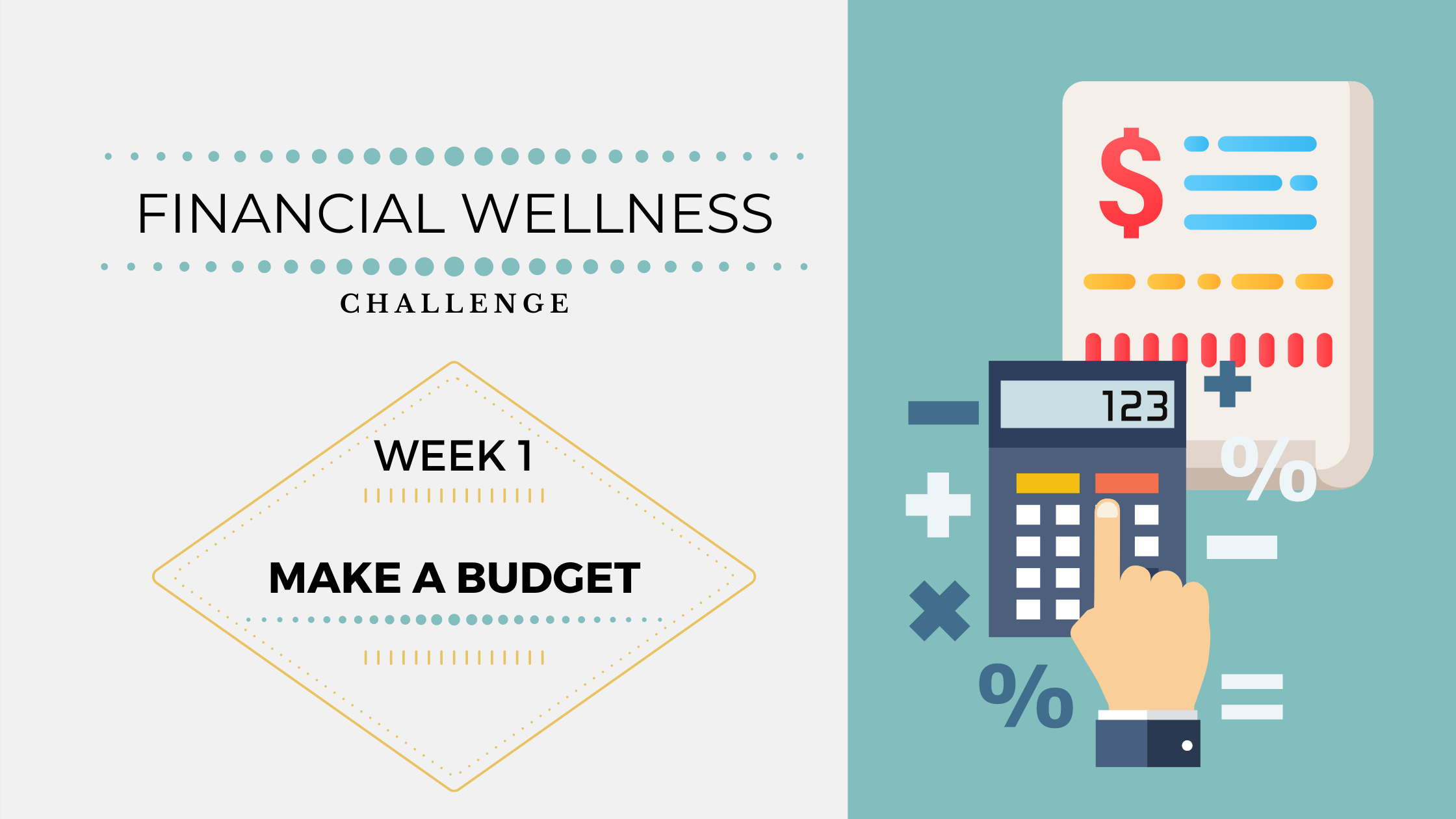Financial Wellness Challenges – Week 1

Financial Wellness Challenges – Create a Budget
Hi there! Happy November! I will be focusing on financial wellness this month with challenges. Why? Because Canada celebrates financial literacy in November! And even though the United States recognizes it in April, I would like to introduce it to you this month because I feel that November is an important month for finances for several reasons:
- New changes are coming with the economy
- Christmas shopping is around the corner
- Last-minute contributions to IRA’s/Most funds
- Necessary end-of-the-year bills, such as property and real estate taxes
What do I mean by Financial Wellness?
Finances are a common cause of stress among people in the modern world. Managing that stress is important for improving one’s personal health. Together, we will explore and improve your financial wellness to help give you a feeling of satisfaction with your finances.
For the next 8 weeks, I am going to focus on financial wellness by offering a financial challenge! If you take action and follow the steps of this challenge, financial satisfaction can be achievable.
Many of us take our finances for granted. We forget that we only have so much money and at times splurge when we really do not have the money to do so. We think it is a good idea to buy that special item we desire on credit, but we don’t have enough to make monthly payments or accumulated interest. Other unexpected or miscellaneous expenses creep up on us at times and we may not have the extra money for them. That’s one reason why it’s so important to have money in savings. These are all reasons why having a budget is important. Therefore, week 1 of this challenge is to develop a budget.
Week 1: November 9 – November 15
Financial Wellness Challenges – activity for this week:
Make a budget
A budget is a visual representation revealing where every dollar is spent and helps you create a plan for your money. Developing a budget will help you track your monthly income and expenses. Also, sticking to a budget will help you avoid impulsive and unnecessary shopping.
A budget will show you wasteful spending habits by helping you identify small purchases that add up over time. It will also show you how much money you have available to save for the future. Need a better picture? Think of a budget as a roadmap that can guide you to create responsible financial decisions.
First, a budget needs to include your take-home pay from all sources and all expenses, even the little ones. Next, you need to identify them. Below, you will find a list of things that are important to know when creating a budget and why making a budget is a smart, first move to improving financial wellness and eventually, financial freedom.
Budgeting can help you achieve financial wellness by:
Focusing on priorities
Focus on necessary bills first such as utilities, groceries, rent/mortgage, gas, transportation, car payments, and taxes. Sit down especially with your partner, if you have one and they are involved, to figure out what bills are the priorities in your life. Don’t know? Pay the bills that will directly affect your credit if not paid first. Then move down the list determining which bills you can truly live without if money is tight (I’m talking to you Dish Network/Netflix/Hulu lovers!).
Reveal wasteful spending
Identifying what is considered wasteful is important. It shows where the leaks are in your savings. Oftentimes, small purchases during the week do not seem like a lot but when added up, it can reveal a wasteful habit. Splurge shopping, going out to eat, or even just getting a coffee daily may be considered a wasteful expense that should be monitored.
Tracking and controlling spending
Budgets help you get an overview showing where each dollar is spent and helps you feel in control of your money. You can now see where your money goes and decide what is necessary to reach your goals.
Saving money
Setting aside money for savings is something everyone should do. Tracking your spending will reveal how much you have left so you can save that money for emergencies, Christmas shopping, vacation, and other large purchases. Saving money helps get you one step closer to achieving your money short and long-term goals. Make sure you include money to increase your savings when making your budget!
Tip: A good rule of thumb for starting a savings account is to put aside 10% of your take-home pay.
Reducing stress
Fixing your finances can give you peace of mind about where your money is going and allow you to make those big purchases and take those vacations. It provides a sense of financial security and relaxation that you never could have imagined possible. Reducing your financial stress will greatly improve your overall health and help you gain financial wellness, and again, financial freedom.
Overall, wherever you start, making a budget is a must. It’s the best way for you to see where your money is going and how to make the most of it.
Click here for a sample budget form: Budget List
Ready to dive in and learn more? Join us next week when we talk cutting back on extra spending.